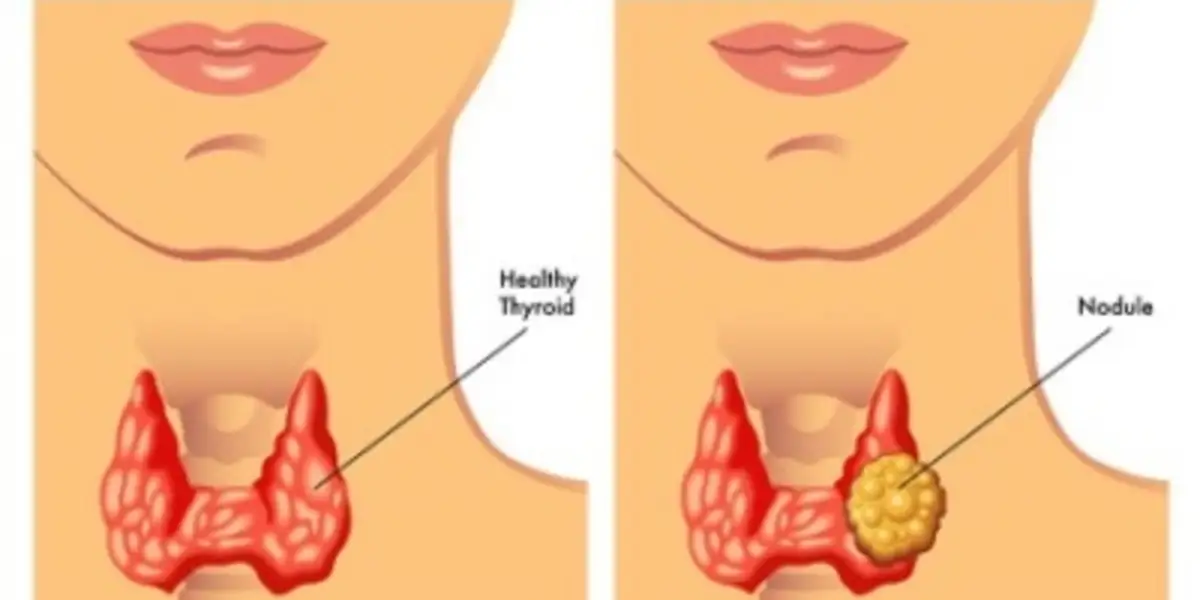A thyroid nodule is a common medical condition that can affect the thyroid gland, a butterfly-shaped organ located at the base of the neck. Understanding thyroid nodules, including their causes, symptoms, and treatment methods, is crucial for effectively managing this condition.
What is a Thyroid Nodule?
A thyroid nodule is a lump that can develop in the thyroid gland. These lumps can be solid or fluid-filled and vary in size. While most thyroid nodules are benign (non-cancerous), a small percentage can be malignant (cancerous). The presence of a nodule can cause noticeable swelling in the neck and may affect the thyroid gland’s function.
Causes of Thyroid Nodules
There are many factors that can contribute to the development of thyroid nodules, including:
- Iodine Deficiency: Iodine is essential for the production of thyroid hormones. A lack of iodine can lead to the development of nodules and goiter (enlarged thyroid). Although iodine deficiency is less common in countries where iodized salt is widely used, it remains a significant cause of thyroid nodules in other parts of the world.
- Thyroiditis: Inflammation of the thyroid gland, or thyroiditis, can lead to the formation of nodules. Conditions such as Hashimoto’s thyroiditis and subacute thyroiditis can cause the thyroid gland to become inflamed and produce nodules.
- Thyroid Tissue Overgrowth: Sometimes, normal thyroid tissue can grow excessively, forming a benign nodule. These nodules, called adenomas, are typically non-cancerous but can sometimes produce thyroid hormones, leading to hyperthyroidism.
- Thyroid Cysts: Thyroid cysts are fluid-filled nodules that can develop due to the degeneration of adenomas or other thyroid conditions. While most cysts are benign, they can sometimes contain solid components that require further evaluation.
- Thyroid Cancer: A small percentage of thyroid nodules are malignant. Risk factors for thyroid cancer include a family history of thyroid cancer, exposure to radiation, and certain genetic conditions.

Symptoms of Thyroid Nodules
Many thyroid nodules do not cause any symptoms and are often discovered during routine physical exams or imaging tests for other conditions. However, some nodules can cause noticeable symptoms, such as:
- Noticeable Swelling: A lump or noticeable swelling in the neck can be a sign of a thyroid nodule. This is often one of the first signs that prompts individuals to seek medical attention.
- Difficulty Swallowing or Breathing: Large nodules or those located in certain areas of the thyroid gland can press against the esophagus or windpipe, causing difficulty swallowing or breathing.
- Pain or Discomfort: While most nodules are not painful, some can cause discomfort or pain in the neck, especially if they are large or growing rapidly.
- Symptoms of Hyperthyroidism or Hypothyroidism: If a nodule produces thyroid hormones, it can lead to symptoms of hyperthyroidism, such as rapid heart rate, weight loss, and anxiety. Conversely, if the nodule impairs hormone production, it can cause symptoms of hypothyroidism, such as fatigue, weight gain, and depression.
Effective Treatment Methods for Thyroid Nodules
The treatment for thyroid nodules depends on various factors, including the size and type of the nodule, whether it causes symptoms, and whether it is benign or malignant. Here are some common treatment methods:
- Monitoring: Many small, asymptomatic benign nodules can be monitored with regular check-ups and ultrasounds. This approach, known as active surveillance, ensures that any changes in the nodule are detected early.
- Medications: If a nodule causes hyperthyroidism, medications such as anti-thyroid drugs can be prescribed to reduce hormone production. Additionally, thyroid hormone replacement therapy may be used to manage hypothyroidism caused by a nodule.
- Fine Needle Aspiration (FNA) Biopsy: An FNA biopsy involves using a thin needle to obtain a small sample of cells from the nodule for analysis. This procedure helps determine whether the nodule is benign or malignant and guides further treatment decisions.
- Radioactive Iodine Treatment: For nodules causing hyperthyroidism, radioactive iodine treatment can be used to shrink the nodule and reduce hormone production. This method is particularly effective for toxic adenomas and multinodular goiters.
- Surgery: Removal of the nodule or part of the thyroid gland may be necessary if the nodule is large, causes significant symptoms, or is suspected to be malignant. Types of surgery include:
- Lobectomy: Removal of one lobe of the thyroid gland.
- Thyroidectomy: Removal of part or all of the thyroid gland. Surgery is often followed by hormone replacement therapy to maintain normal thyroid hormone levels.
- Ethanol Ablation: In some cases, ethanol ablation can be used to treat benign cystic nodules. This procedure involves injecting ethanol into the nodule to shrink it.
Thyroid Nodules and Radiofrequency Ablation (RFA)
Thyroid nodules are a common condition that can affect people of all ages. While most nodules are benign and asymptomatic, some can cause noticeable symptoms or indicate a more serious condition. Understanding the causes, symptoms, and treatment methods for thyroid nodules is essential for effective management and overall health. Regular health check-ups and screenings can help doctors diagnose nodules early and provide the best course of action.
At Dr. Tu Tuyen Giap Specialist Clinic, 191 Vong, Hanoi – where the RFA method is effectively applied due to extensive experience with this minimally invasive technique. Dr. Tu’s team can handle many difficult cases quickly and without recurrence. Patients can come for examination, undergo the procedure, and return home the same day. If you are interested in this technique, see more about Dr. Tu’s Radiofrequency Ablation (RFA) for thyroid nodules.
Treatment of Thyroid Tumors with Radiofrequency Ablation (RFA): Effectiveness and Advantages
